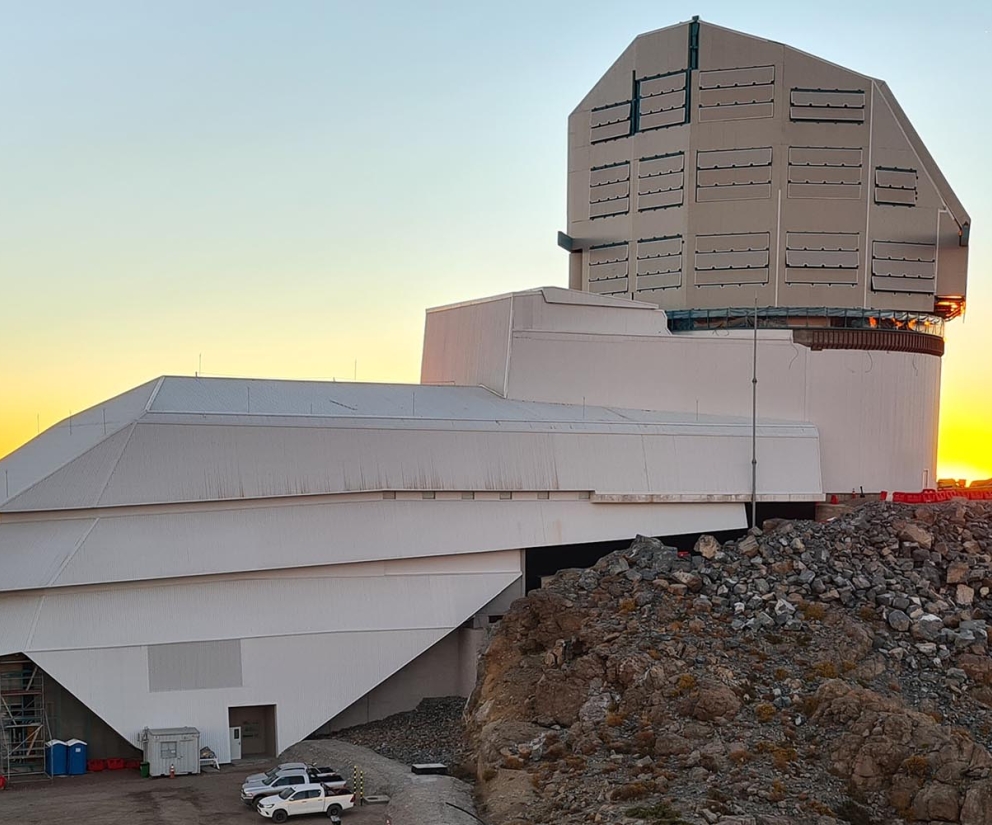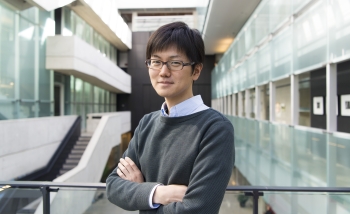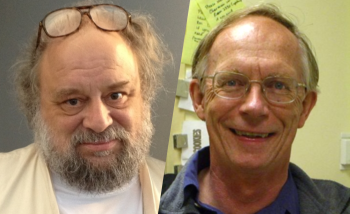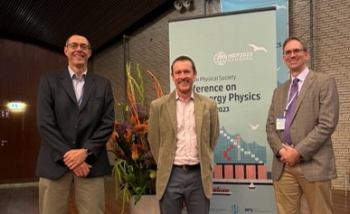Prestigious Polanyi Prize goes to PI visiting fellow
The potential of Eduardo Martin-Martinez’s research into the structure of spacetime is so vast, it has earned the Perimeter Institute Visiting Fellow one of five $20,000 John Charles Polanyi Prizes from the Council of Ontario Universities.
Martin-Martinez uses quantum information to study gravity’s effects by combining strands of quantum information science with quantum field theory and general relativity. The research not only helps us to better understand spacetime structure, but could one day help explain how spacetime curvature and quantum theory impact the flow and the processing of information – an important element in quantum computing.
The John Charles Polanyi Prizes are given each year to five exceptional young researchers who are either continuing postdoctoral work or have recently gained a faculty appointment. One prize is given in each of the same categories as the Nobel Prizes – physics, chemistry, physiology or medicine, literature, and economic science – to recognize work that holds great potential to advance the respective fields.
“I see this great prize as recognition for the field of relativistic quantum information (RQI). I defended the first PhD thesis in the field of RQI, and I feel that we have walked a long way since then in so little time,” said Martin-Martinez, a Research Assistant Professor at the Institute for Quantum Computing, also in Waterloo, Ontario.
“My work would have not been possible without my collaborators and friends, and it means a lot in terms of encouragement and energy to continue working hard.
“These are exciting times for the development of quantum science and I feel fortunate to work in such a great place as the quantum hub in Waterloo,” Martin-Martinez said.
The awards are named after Hungarian-Canadian chemist John Polanyi, who used a borrowed spectrometer at the University of Toronto to examine energy disposal during chemical reactions in the 1950s. Polanyi’s work founded the field of reaction dynamics and earned him the 1986 Nobel Prize in Chemistry.
Martin-Martinez accepted the award at Massey College in Toronto on November 17, at a formal ceremony hosted by the Lieutenant Governor of Ontario, The Honourable Elizabeth Dowdeswell.
The other Polanyi Prize winners were Drew Bennett, chemistry, University of Waterloo; Rahul Deb, economic science, University of Toronto; Andrea Charise, literature, University of Toronto; and Jennifer Brunet, physiology, University of Ottawa.
About PI
Perimeter Institute is the world’s largest research hub devoted to theoretical physics. The independent Institute was founded in 1999 to foster breakthroughs in the fundamental understanding of our universe, from the smallest particles to the entire cosmos. Research at Perimeter is motivated by the understanding that fundamental science advances human knowledge and catalyzes innovation, and that today’s theoretical physics is tomorrow’s technology. Located in the Region of Waterloo, the not-for-profit Institute is a unique public-private endeavour, including the Governments of Ontario and Canada, that enables cutting-edge research, trains the next generation of scientific pioneers, and shares the power of physics through award-winning educational outreach and public engagement.




